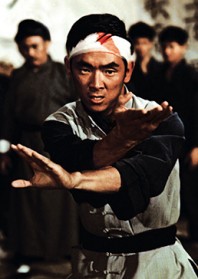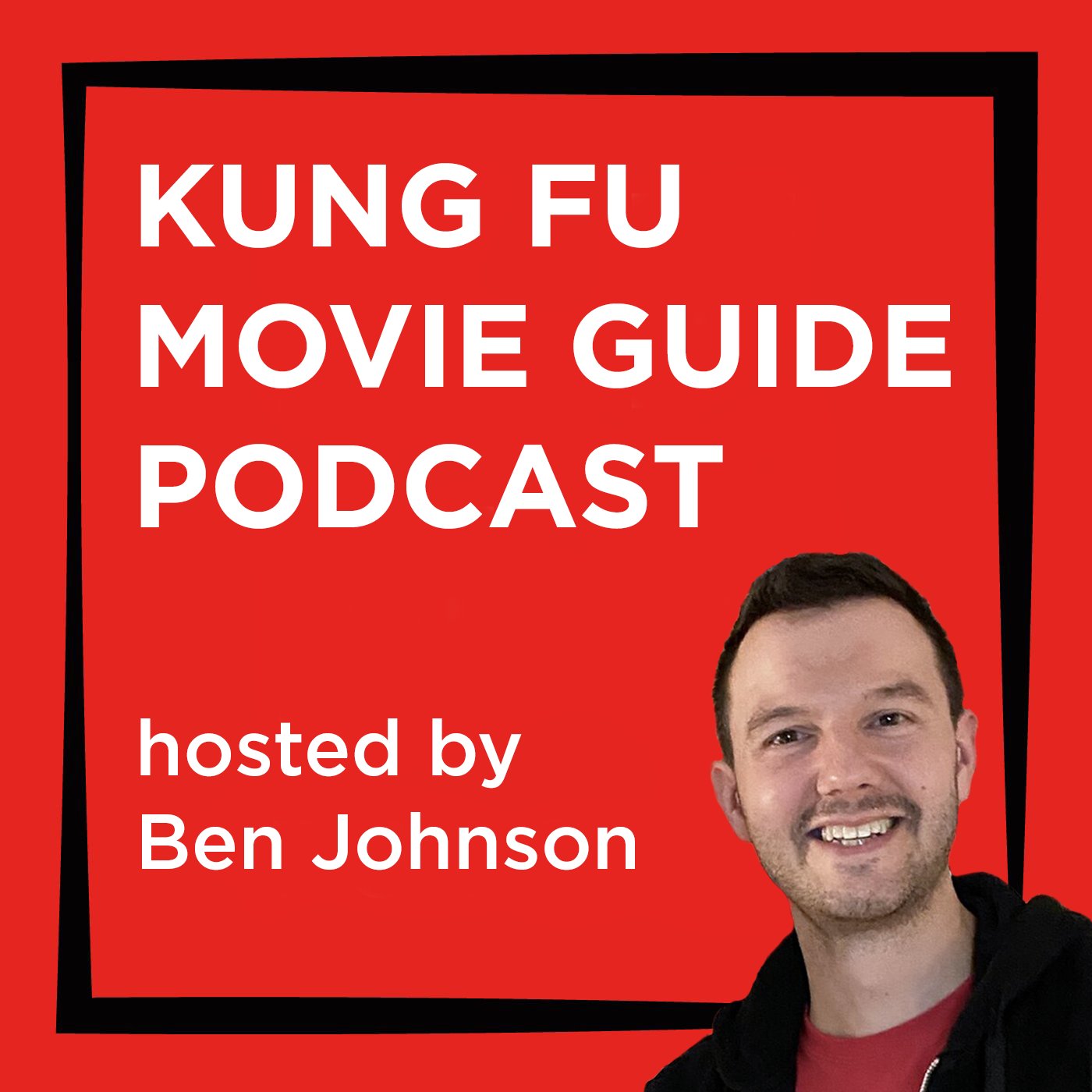
Date of birth: 28 March, 1943 (Shanghai, China)
Date of death: 5 April, 2022 (aged 79), Taiwan
Occupation: Actor, director, producer, screen writer
Real name: Wang Zheng-quan
Other names: Wang Yu, Wang Yue, Wong Yu-lung, Wong Jing-Kuen, Jimmy Wong Yu, Tiger Yang
Biography: Despite receiving no formal martial arts training, Jimmy Wang Yu predates Bruce Lee as Hong Kong’s first kung fu action hero. Born and educated in Shanghai, he grew up in a wealthy family – his father was a businessman – and he was very active as a child. He was also regarded locally as something of a troublemaker and would often get into fights. As a way of disciplining his son, Wang Yu’s father sent him to the Shanghai Sports Academy, where he developed his love of sports – namely swimming, athletics, and martial arts. In 1961, as China entered an era of political turmoil, Wang Yu’s family relocated south to Hong Kong, where he attended community college in Zhuhai.
When living in Hong Kong, Wang Yu was persuaded by a friend to respond to an advertisement by the Shaw Brothers film studio, who were looking for Mandarin-speaking male actors who knew martial arts. In 1963, he beat over 3,000 applicants to secure a contract with Shaw Brothers. His breakout success was Tiger Boy (1966), which sparked a regular working relationship with the film’s director, Chang Cheh. The duo worked together on a number of titles, including The Magnificent Trio (1966), before achieving huge local success with One-Armed Swordsman (1967), the first Hong Kong film to gross HK$1m and the catalyst for launching Jimmy Wang Yu into action movie super-stardom.
Chang Cheh continued to use Wang Yu for a number of films, including The Assassin (1967), Golden Swallow (1968) and the sequel, Return of the One-Armed Swordsman (1968). In a bid to achieve more creative control over his projects while under contract at Shaw Brothers, Wang Yu threatened to leave the studio. Fearing the studio would lose its biggest star, Run Run Shaw agreed to allow Wang Yu write, direct and star in his next movie, The Chinese Boxer (1970). The film was a huge success and signalled a shift at Shaw Brothers to a more ‘masculine’ style of action cinema. It is credited for being the first empty-hand kung fu movie and a precursor to the success of latter-day Hong Kong action stars, like Bruce Lee and Jackie Chan. The film’s patriotic sentiment and vengeful story would become standard plot devices for the genre throughout the 1970s.
Following the success of The Chinese Boxer, Wang Yu eventually broke his contract with Shaw Brothers and was summarily blacklisted from filming in Hong Kong, relocating to Taiwan to work on independent productions and collaborative efforts with other studios, including Golden Harvest. Throughout the early 1970s, Wang Yu was at the helm of a number of important international co-productions, including a reprisal of his one-armed swordsman role opposite the Japanese cinematic icon Zatoichi – the blind swordsman – for Zatoichi Meets the One-Armed Swordsman (1971), and as the star of Australia’s first martial arts film, The Man from Hong Kong (1975). As director, writer and star, Wang Yu would achieve lasting cult success with his empty-handed kung fu films One-Armed Boxer (1971) and its sequel, Master of the Flying Guillotine (1975).
Throughout the 1970s and 80s, Wang Yu was dogged by controversy, and became more famous in the Hong Kong and Taiwanese press for his connections to triad groups – earning himself the nickname, ‘The Gangster’ – and specifically his alleged involvement in a number of violent, gang-related clashes. In 1976, he was involved in an altercation in a Taipei restaurant in which four people were killed, resulting in him having to temporarily leave Taiwan for Hong Kong to avoid investigation. According to Cool Ass Cinema, he was eventually caught and served a reduced sentence of five months. In 1981, Wang Yu was attacked in another supposedly gang-related incident in a restaurant. He was almost killed after being stabbed seven times for apparently upsetting the leader of one of Taiwan’s most notorious triad gangs.
In shades of his own experiences of breaking his contract at Shaw Brothers, it is widely speculated that Wang Yu helped to broker a deal which allowed Jackie Chan to leave his contract under the director-producer, Lo Wei, in favour of signing with Golden Harvest. It is claimed that Jackie Chan later appeared in two Wang Yu ‘comeback’ films as a favour to the actor: Fantasy Mission Force (1983) and Island of Fire (1990). Wang Yu retired from the film industry in 1997 to become a businessman. His international cult status was assured when footage from his film, Tiger and Crane Fists (1976), was used in the spoof kung fu film, Kung Pow! Enter the Fist (2002).
He returned to the big screen in 2011 to widespread acclaim opposite Donnie Yen in the film, Dragon, and his final film was the horror film, Soul (2013), which also starred Joseph Chang. Both Dragon and Soul earned him acting nominations at Taiwan’s Golden Horse Awards, and he was given a Lifetime Achievement Award at the Golden Horse Awards in 2019.
His turbulent personal life was often a matter of tabloid scrutiny. In 1969, he married the actor, Jeanette Lin Tsui, before they divorced in 1975. Lin died in 1995 at the age of 60. Together they had three daughters – Carol, Maria and the singer, Linda Wong. In 1981, Wang Yu married the former flight attendant, Wang Kai-chen, before they divorced in 1999 after it was revealed she was having an affair.
Wang Yu had suffered from ill health for a number of years before his death in 2022 at the age of 79. After a mild stroke in 2011, he suffered a second stroke in 2015, and underwent two emergency brain operations. He was not seen in public after returning to Taiwan in 2016. His death was announced on Instagram by his eldest daughter, Linda Wong. Upon hearing news of his death, Jackie Chan wrote on social media: “The contributions you’ve made to kung fu movies and the support and wisdom you’ve given to the younger generations will always be remembered in the industry, and your movies will always remain in the hearts of your fans.”
Speech! “When I was a young filmmaker, I was influenced by many Japanese films which gave me many hints. I am honoured to have young people influenced by my films, but I hope those young filmmakers will make films that will exceed mine.” Speaking at the Japan Fantastic Film Festival 2003.
On the secret to keeping young: “Every morning, I lift weights for one hour then I run for 20 minutes… and a bottle of Japanese sake every night.”
Filmography (as actor): 1965 Temple of the Red Lotus; The Twin Swords; 1966 The Magnificent Trio; Tiger Boy; 1967 One-Armed Swordsman; The Assassin; Trail of the Broken Blade; Asia-Pol; Sword and the Lute 1968 The Sword of Swords; Golden Swallow; 1969 Return of the One-Armed Swordsman; 1970 My Son; The Chinese Boxer (+ dir, scr.); 1971 One-Armed Boxer (+ dir, scr.); The Desperate Chase; The Professional Killer; Morale and Evil; Invincible Sword; Zatoichi Meets the One Armed Swordsman; Magnificent Chivalry; 1972 The Invincible; Furious Slaughter; The Last Duel; Chow Ken; The Adventure; Shogun Saints; Royal Fist; 1973 Black Friday; A Man Called Tiger; Knight Errant; Seaman No. 7; Beach of the War Gods (+ dir, scr.); The Two Cavaliers; King of Boxers; Ten Fingers of Steel; Boxers of Loyalty and Righteousness (+ dir, pro, action dir.); The Tattooed Dragon; 1974 My Father, My Husband, My Son; The Iron Man; The Hero; Four Real Friends (+ dir.); 1975 Master of the Flying Guillotine (+ dir, scr.); A Cookbook of Birth Control; The Man from Hong Kong; The Gallant; Great Hunter; 1976 A Queen’s Ransom; One-Armed Swordsman Against Nine Killers (+ pro.); One Armed Swordsman (+ dir.); The Killer Meteors; Rage of the Masters; Tiger and Crane Fists (+ dir.); 1977 Return of the Chinese Boxer (+ dir, pro.); The Criminal; Brotherly Love; One Arm Chivalry Fights Against One Arm Chivalry; Lantern Street; Deadly Silver Spear; 1978 Blood of the Dragon; Point of the Finger of Death; Big Leap Forward; 1979 Ma Su Chen; The Battle of Guningtou; Prisoners of Mao; 1982 Revenge of Kung Fu Mao; 1983 Fantasy Mission Force; 1984 Shanghai 13; 1986 Millionaire’s Express; 1990 Island of Fire (+ pro.); 1991 Once Upon a Time in China; 1992 Shogun & Little Kitchen; Requital; 1993 Beheaded 1000 (+ pro.); 2002 Kung Pow! Enter the Fist; 2011 Dragon; Let’s Go; 2012 The Guillotines; 2013 Soul.












